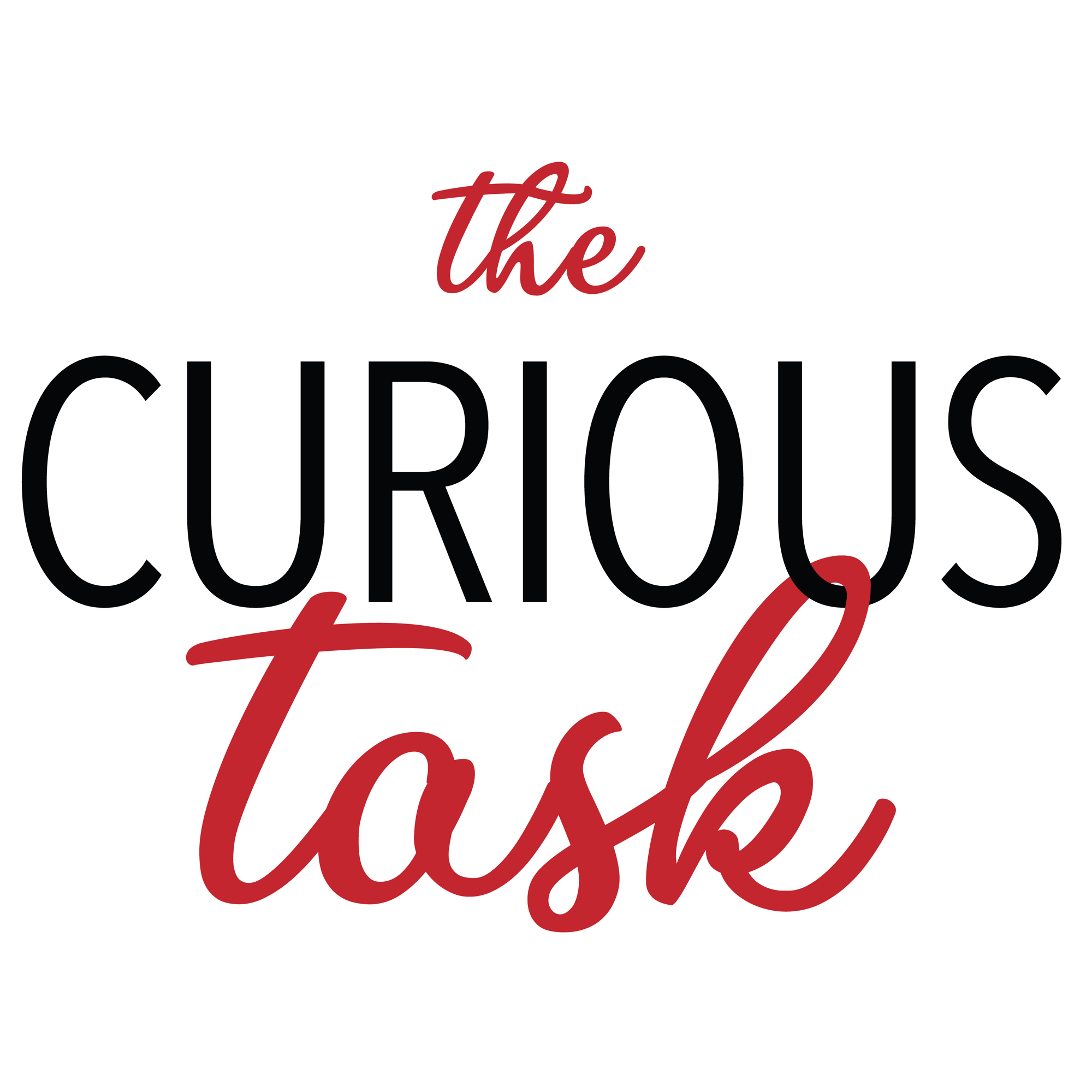Episodes
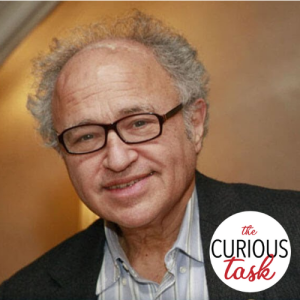
Wednesday Apr 27, 2022
David Friedman - What Does Law Have To Do With Economics?
Wednesday Apr 27, 2022
Wednesday Apr 27, 2022
Alex speaks with David Friedman about the history of legal systems around the world from an economic standpoint.
References
1. “The Machinery of Freedom: Guide to Radical Capitalism” by David D. Friedman
Link: http://www.daviddfriedman.com/The_Machinery_of_Freedom_.pdf
2. “Law’s Order: What Economics Has to Do with Law and Why It Matters” by David D. Friedman
Link: http://www.daviddfriedman.com/Laws_Order_draft/laws_order_ToC.htm
3. “Who Is David Ricardo and What Is He Famous For?” by the Investopedia Team
4. “Ordeals” by Peter T. Leeson
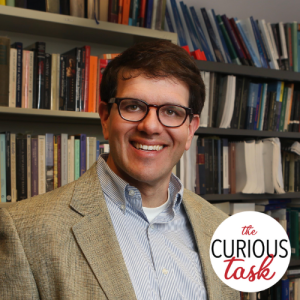
Wednesday Apr 20, 2022
Ryan Patrick Hanley - What Is Our Great Purpose?
Wednesday Apr 20, 2022
Wednesday Apr 20, 2022
Alex speaks with Ryan Patrick Hanley about the enduring power of Adam Smith's contributions to not only political and moral philosophy, but to what it means to live a good life.
References
1. “Adam Smith and the Character of Virtue” by Ryan Patrick Hanley
Link: https://www.amazon.ca/Smith-Character-Virtue-Patrick-Hanley/dp/0521449294
2. “Adam Smith: His Life, Though, and Legacy” by Ryan Patrick Hanley
Link: https://www.amazon.ca/Adam-Smith-Life-Thought-Legacy/dp/0691154058
3. “The Theory of Moral Sentiments” by Adam Smith, Ryan Patrick Hanley, and Amartya Sen
Link: https://www.amazon.ca/Theory-Moral-Sentiments-Adam-Smith/dp/0143105922
4. “The Theory of Moral Sentiments and on the Origins of Language” by Adam Smith
5. “The Wealth of Nations” by Adam Smith
Link: https://www.amazon.ca/Wealth-Nations-Adam-Smith/dp/1680920960
6. “Our Great Purpose: Adam Smith on Living a Better Life” by Ryan Patrick Hanley
Link: https://www.amazon.ca/Our-Great-Purpose-Living-Better/dp/0691179441

Wednesday Apr 13, 2022
Jacob Levy - What Is Academic Freedom?
Wednesday Apr 13, 2022
Wednesday Apr 13, 2022
Alex speaks with Jacob Levy about the fine line between the generalized right to free speech and the distinct concept of academic freedom - and what implications there may be for academics and students alike in today's modern university.
References
1. “Rationalism, Pluralism, and Freedom” by Jacob Levy
Link: https://www.amazon.ca/Rationalism-Pluralism-Freedom-Jacob-Levy/dp/0198808917
2. “The Multiculturalism of Fear” by Jacob Levy
Link: https://www.amazon.ca/Multiculturalism-Fear-Jacob-T-Levy/dp/0198297122
3. Jacob Levy's Episodes on The Curious Task

Monday Apr 11, 2022
Russ Roberts - What’s Wrong With Education?
Monday Apr 11, 2022
Monday Apr 11, 2022
Alex speaks with Russ Roberts about the nature of education and how we should rethink it in today's world. This is a special episode being released in conjunction with this week's episode of Econtalk.
References
1. The Center for Experiential Learning at Washington University
2. EconTalk Podcast
Link: https://simplecast.econtalk.org/
3. “How Adam Smith Can Change Your Life: An Unexpected Guide to Human Nature and Happiness” by Russ Roberts
Link: https://www.amazon.ca/Adam-Smith-Change-Your-Life/dp/1591847958

Wednesday Apr 06, 2022
Aaron Powell - Is Fusionism Dead?
Wednesday Apr 06, 2022
Wednesday Apr 06, 2022
Alex speaks with Aaron Powell about the origins of fusionism, where it stands today, and why non-traditional alliances might be the way of the future.
References
1. Free Thoughts Podcast
Link: https://www.libertarianism.org/podcasts/free-thoughts
2. ReImagining Liberty Podcast
Link: https://www.reimaginingliberty.com/podcast/
3. “After protests, Disney CEO speaks out against ‘Don’t Say Gay’ bill” by Elizabeth Blair
Link: https://www.npr.org/2022/03/08/1085130633/disney-response-florida-bill-dont-say-gay
4. “An Introduction to Marxism for Non-Marxists” ReImagined Podcast Episode
Link: https://www.reimaginingliberty.com/an-introduction-to-marxism-for-non-marxists-w-ian-bennett/
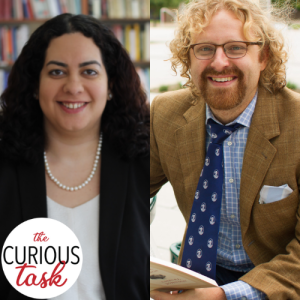
Wednesday Mar 30, 2022
Sabine El-Chidiac and Peter Jaworski - Does Immigration Make A Better World?
Wednesday Mar 30, 2022
Wednesday Mar 30, 2022
Alex speaks with Sabine El-Chidiac and Peter Jaworski about the advantages of advocating for more refugees and immigrants in Canada, and how it makes both immigrants and receiving countries better off.
References
1. Institute for Liberal Studies

Wednesday Mar 23, 2022
Charles Cockell - Why Is Freedom Important Beyond Earth?
Wednesday Mar 23, 2022
Wednesday Mar 23, 2022
Alex speaks with Charles Cockell about his focus on the future of liberty in space. They discuss solutions for protecting individual freedoms and rights on settlements beyond earth, and the novel solutions to the problems that would emerge from these overlooked facts of life in space.
References
1. “The Meaning of Liberty Beyond Earth” by Charles S. Cockell
Link: https://www.amazon.com/Meaning-Liberty-Beyond-Earth-Society/dp/3319095668
2. Earth and Space Foundation
Link: https://www.earthandspace.org/
3. “Interplanetary Liberty: Building Free Societies in the Cosmos” by Charles S. Cockell
Link: https://www.amazon.com/Interplanetary-Liberty-Building-Societies-Cosmos/dp/0192866249
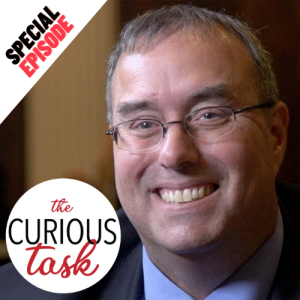
Wednesday Mar 16, 2022
Pete Boettke — Is a Better World Possible?
Wednesday Mar 16, 2022
Wednesday Mar 16, 2022
Economist Pete Boettke joins Alex to discuss the promise of liberalism in creating a better world. (This episode originally aired Aug 21, 2021.)
References
1. “The Struggle for a Better World” by Pete Boettke
Link: https://www.amazon.com/Struggle-Better-World-Peter-Boettke/dp/1942951876
2. “Hayek on the Role of Reason in Human Affairs” by Intercollegiate Studies Institute
3. Read more about Frederick Douglass and Lysander Spooner on Abolitionism
Link: https://teachdemocracy.org/images/pdf/Abolitionists-and-the-Constitution.pdf
4. “National Economic Planning: What is Left?” by Don Lavoy
Link: https://www.amazon.com/National-Economic-Planning-What-Left/dp/1942951264
5. “Politically Impossible” by W.H. Hutt
Link: https://mises.org/library/book/politically-impossible
6. “The Theory of Economic Policy in English Classical Political Economy” by Lionel Robbins
Link: https://mises.org/library/book/theory-economic-policy-english-classical-political-economy
7. “Liberty’s Dawn: A People's History of the Industrial Revolution” by Emma Griffin
Link: https://www.amazon.ca/Libertys-Dawn-Peoples-Industrial-Revolution/dp/0300205252
8. “So Who is Carmen Segarra? A Fed Whistleblower Q&A” by Jake Bernstein
Link: https://www.propublica.org/article/so-who-is-carmen-segarra-a-fed-whistleblower-qa
9. “Rothbard and the Nature of the State” by Matt Palmer
Link: https://mises.org/mises-daily/rothbard-and-nature-state
10. “Libertarianism as Humanism: Remembering Steve Horwitz” by Trevor Burrus
Link: https://www.cato.org/blog/libertarianism-humanism-remembering-steve-horwitz
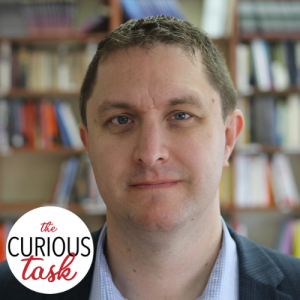
Wednesday Mar 09, 2022
Matt Bufton - What Is The Future Of Liberalism From 2022?
Wednesday Mar 09, 2022
Wednesday Mar 09, 2022
Alex speaks with Matt Bufton about the effects of pandemic policy, impending war and populism on a once-optimistic outlook for liberalism's future.
References
1. Institute for Liberal Studies
Link: https://www.liberalstudies.ca/
2. “What is the Future of Liberalism” The Curious Task Episode with Matt Bufton
Link: https://thecurioustask.podbean.com/e/ep-22-matt-bufton-%e2%80%94-what-is-the-future-of-liberalism/
3. “Portland Protesters Create ‘Autonomous Zone’ by Pitching Tents, Rebuilding Barricades Removed by Police” by Danielle Wallace
Link: https://www.foxnews.com/us/portland-protest-autonomous-zone-tents-barricade-seattle-chop-chaz
4. “Ukraine in Maps: Tracking the War in Russia” by the BBC Visual Journalism Team
Link: https://www.bbc.com/news/world-europe-60506682
5. “Government of Canada prohibits Russian aircraft to enter Canadian airspace” by Transport Canada
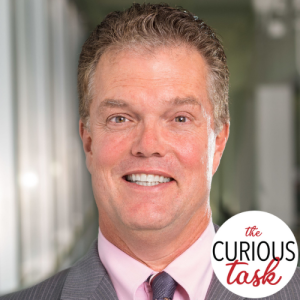
Wednesday Mar 02, 2022
Mike Munger - What’s Wrong With Anti-Trust and Industrial Policy?
Wednesday Mar 02, 2022
Wednesday Mar 02, 2022
Alex speaks with Mike Munger about the concept of monopoly and the history of anti-trust and industrial policy in America.
References
1. “Is Capitalism Sustainable?” by Michael Munger
Link: https://www.amazon.ca/Capitalism-Sustainable-Michael-Munger/dp/1630691739
2. “Michael Munger on Antitrust” Podcast by Econlib
Link: https://www.econtalk.org/michael-munger-on-antitrust/
3. “The Antitrust Laws” by the Federal Trade Commission
Link: https://www.ftc.gov/advice-guidance/competition-guidance/guide-antitrust-laws/antitrust-laws
4. “The Antitrust Paradox” by Robert H. Borke
Link: https://www.amazon.ca/Antitrust-Paradox-Robert-H-Bork/dp/1736089706
5. “Banking Act of 1933 (Glass-Steagall)” by Federal Reserve History

Wednesday Feb 23, 2022
Bryan Caplan - How Do We Fix The Housing Crisis?
Wednesday Feb 23, 2022
Wednesday Feb 23, 2022
Alex speaks with Bryan Caplan about his novel solutions to the housing crisis, his affinity for graphic novels as a teaching tool, and the market-based approaches that are already working despite what our psychology is leading us to believe.
References
1. “The Myth of the Rational Voter: Why Democracies Choose Bad Policies” by Bryan Caplan
Link: https://www.amazon.ca/Myth-Rational-Voter-Democracies-Policies/dp/0691138737
2. “The Case Against Education: Why the Education System is a Waste of Time and Money” by Bryan Caplan
Link: https://www.amazon.ca/Case-against-Education-System-Waste/dp/0691174652
3. “Open Borders: The Science and Ethics of Immigration” by Bryan Caplan
Link: https://www.amazon.ca/Open-Borders-Science-Ethics-Immigration/dp/1250316960
4. “Selfish Reasons to Have More Kids: Why Being A Great Parent is Less Work and More Fun Than You Think” by Bryan Caplan
Link: https://www.amazon.ca/Selfish-Reasons-Have-More-Kids/dp/0465028616
5. “Build, Baby, Build: The Science and Ethics of Housing Regulation” by Bryan Caplan
Link: https://www.amazon.ca/Build-Baby-Science-Housing-Regulation/dp/1952223415
6. “Build, Baby, Build: Now Under Construction” by Bryan Caplan
Link: https://www.econlib.org/build-baby-build-now-under-construction/
7. “Laisseze-faire” by Britannica
Link: https://www.britannica.com/money/laissez-faire
8. “Labour Econ Versus the World: Essays on the World’s Greatest Market” by Bryan Caplan
Link: https://www.amazon.ca/Labor-Econ-Versus-World-Greatest/dp/B09QF44HHG

Wednesday Feb 16, 2022
Andrew Smith - Do Entrepreneurs Help Create Peace?
Wednesday Feb 16, 2022
Wednesday Feb 16, 2022
Alex speaks with Andrew Smith about capitalist peace theory and discusses a Canadian case study as an example of mutually beneficial exchange leading to peace and prosperity.
References
1. “Canadian Entrepreneurs and the Preservation of the Capitalist Peace in the North Atlantic Triangle in the Civil War Era, 1861-1871” by Andrew D. Smith and Laurence B. Mussio
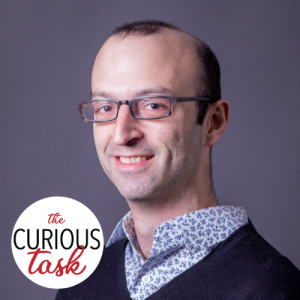
Wednesday Feb 09, 2022
Adam Gurri - What ls Mere Liberalism?
Wednesday Feb 09, 2022
Wednesday Feb 09, 2022
Alex speaks with Adam Gurri about how the large umbrella of liberalism under which a number of movements, systems of thought, and ideological identities may have more in common than is often thought.
References
1. Liberal Currents Magazine
Link: https://www.liberalcurrents.com/
2. Embodiment and Exclusion Blog
Link: https://embodimentandexclusion.com/
3. Jacobin Magazine
Link: https://jacobin.com/
4. “The Communitarian Critique of Liberalism” by Michael Walzer
Link: https://www.ias.edu/sites/default/files/sss/pdfs/Walzer/CommunitarianCritiqueLiberalism.pdf
5. Matthew McMannis Articles
Link: https://www.liberalcurrents.com/author/mattmcmanus/
6. “Private Government: How Employer’s Rule our Lives (and Why We Don’t Talk about It)” by Elizabeth Anderson
Link: https://www.amazon.ca/Private-Government-Employers-Lives-about/dp/0691176515
7. Alex Aragona Articles
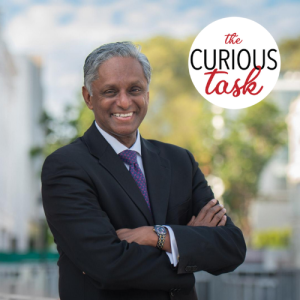
Wednesday Feb 02, 2022
Chandran Kukathas - What’s Wrong With Immigration Control?
Wednesday Feb 02, 2022
Wednesday Feb 02, 2022
Alex speaks with Chandran Kukathas about the costs of limiting immigration and what effects there may be on policy if the question of who counts as an immigrant is itself unclear.
References
1. “Immigration and Freedom” by Chandran Kukathas
Link: https://www.amazon.com/Immigration-Freedom-Chandran-Kukathas/dp/0691189684

Wednesday Jan 26, 2022
Stephen Davies - What Is Global Catastrophic Risk?
Wednesday Jan 26, 2022
Wednesday Jan 26, 2022
Alex speaks with Steve Davies about the meaning of "Global Catastrophic Risk", and what it can reveal about how restructuring our understanding of big gambles can help us combat the threats of pandemics, climate change, and even technological singularity.
References
1. “Empiricism and History” by Stephen Davies
Link: https://www.amazon.com/Empiricism-History-Theory-Stephen-Davies/dp/0333964705
2. “A Dictionary of Conservative and Libertarian Thought” by Nigel Ashford and Stephen Davies
Link: https://www.amazon.com/Dictionary-Conservative-Libertarian-Routledge-Revivals/dp/0415670527
3. “Apocalypse Next: The Economics of Global Catastrophic Risk” by Stephen Davies
Link: https://www.amazon.ca/Apocalypse-Next-Economics-Global-Catastrophic/dp/0255368216
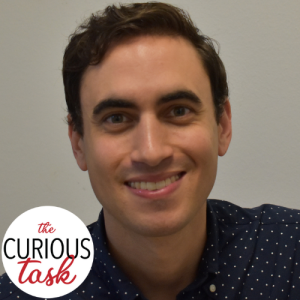
Wednesday Jan 19, 2022
Dan Shahar - Is It Okay To Eat Meat?
Wednesday Jan 19, 2022
Wednesday Jan 19, 2022
Alex speaks with Dan Shahar about the ethical implications of meat-eating, activism in relation to problematic markets, and a tricky thought experiment involving aliens and cows.
References
1. “Environmental Ethics: What Really Matters, What Really Works” by David Schmidtz and Dan C. Shahar
Link: https://www.amazon.ca/Environmental-Ethics-Really-Matters-Works/dp/0190259221
2. “Why It’s OK to Eat Meat” by Dan C. Shahar
Link: https://www.amazon.ca/Why-Its-OK-Eat-Meat/dp/0367172763
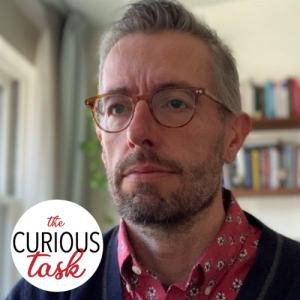
Wednesday Jan 12, 2022
Will Clare Roberts - What Was Marx’s Relation To Liberalism?
Wednesday Jan 12, 2022
Wednesday Jan 12, 2022
Alex speaks with Professor Will Clare Roberts about Marx's life, his liberal past, and the relationship between the Marxist and liberal conceptions of freedom.
References
1. “Marx’s Inferno: The Political Theory of Capitalism” by William Clare Roberts
Link: https://www.amazon.ca/Marxs-Inferno-Political-Theory-Capital/dp/0691172900
2. “Capital: Volume I” by Karl Marx
Link: https://www.amazon.ca/Capital-Critique-Political-Economy-Kapital-ebook/dp/B002XHNMN0
3. “The Civil War In France” by Karl Marx
Link: https://www.marxists.org/archive/marx/works/1871/civil-war-france/
4. “The Paris Commune” by Karl Marx
Link: https://www.marxists.org/archive/marx/works/1871/civil-war-france/ch05.htm
5. “The International Workingmen’s Association: General Rules, October 1864” by Karl Marx
Link: https://www.marxists.org/history/international/iwma/documents/1864/rules.htm
6. “Free Time and Free People” by William Clare Roberts
Link: https://lareviewofbooks.org/article/free-time-free-people/
7. “The Wealth of Nations” by Adam Smith
Link: https://www.amazon.ca/Wealth-Nations-Adam-Smith/dp/1680920960
8. “The Eighteenth Brumiare of Louis Bonaparte” by Karl Marx
Link: https://www.amazon.ca/Eighteenth-Brumaire-Louis-Bonaparte-Karl/dp/0717800563
9. “Articles by Karl Marx in the New York Tribune, 1852-61” by Marxist Internet Archives
Link: https://www.marxists.org/archive/marx/works/subject/newspapers/new-york-tribune.htm

Wednesday Jan 05, 2022
James Harrigan - What Does Pop Culture Say About A Society?
Wednesday Jan 05, 2022
Wednesday Jan 05, 2022
Alex speaks with James Harrigan about popular culture as a source of social change and the many ways in which the export of American pop culture has shaped the world.
References
1. “Brown v. Board of Education” by the National Archives
Link: https://www.archives.gov/milestone-documents/brown-v-board-of-education
2. “Roe v. Wade” by Britannica
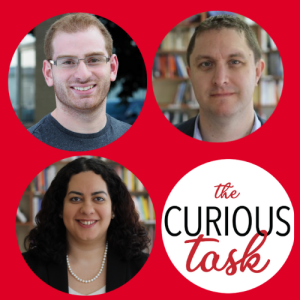
Wednesday Dec 29, 2021
Year in Review with Matt Bufton and Sabine El-Chidiac
Wednesday Dec 29, 2021
Wednesday Dec 29, 2021
Alex speaks with Curious Task Executive Producer Matt Bufton and Producer Sabine El-Chidiac about topics related to freedom from 2021, and reflect on their favourite moments and accomplishments from the past year of The Curious Task.
References
1. “Welcoming Afghans to Canada” by the Government of Canada
2. “What is Classical Liberalism” The Curious Task Podcast Episode by Nigel Ashford
Link: https://thecurioustask.podbean.com/e/ep-1-nigel-ashford-%E2%80%94-what-is-classical-liberalism/
3. “Is Scarborough the Dining Capitol of the World?” The Curious Task Podcast Episode by Tyler Cowen
4. Learn more about the Institute for Liberal Studies here:
Link: https://www.liberalstudies.ca/about/
5. Learn more about Freedom Week hosted by the Institute for Liberal Studies here:
Link: https://www.liberalstudies.ca/freedom-week/
6. “How do We Bridge Divides” The Curious Task Podcast Episode by Ben Klutsey
Link: https://thecurioustask.podbean.com/e/ep-117-ben-klutsey/
7. “Do Markets Need Capitalism?” The Curious Task Podcast Episode by Gary Chartier
Link: https://thecurioustask.podbean.com/e/ep-118-gary-chartier-do-markets-need-capitalism/
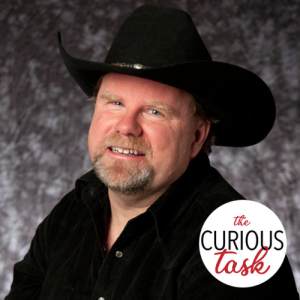
Wednesday Dec 22, 2021
Tony Gill - Why Do We Give Gifts?
Wednesday Dec 22, 2021
Wednesday Dec 22, 2021
Alex speaks with Tony Gill about the pros and cons of gift-giving from an economist's perspective - just in time for the holiday season!
References
1. “Research on Religion” Podcast by Anthony Gill
Link: http://www.researchonreligion.org/
2. “The Comparative Endurance and Efficiency of Religion: A Public Choice Approach” by Anthony Gill
Link: https://papers.ssrn.com/sol3/papers.cfm?abstract_id=3400324
3. “Gift Giving is Better for Society than Economists Think” by Anthony Gill
Link: https://aier.org/article/gift-giving-is-better-for-society-than-economists-think/
4. “The Dynamic Efficiency of Giving” by Anthony Gill
5. “Why Give Gifts?” Poem Reading by Anthony Gill
Link: https://www.youtube.com/watch?v=hUQBxNO7ofI&ab_channel=UW%28UniversityofWashington%29
6. “The Deadweight Loss of Christmas” by Joel Waldfogel
Link: https://www.amherst.edu/media/view/104699/original/christmas.pdf
7. “The Use of Knowledge in Society” by Freidrich August von Hayek
Link: https://www.cato.org/sites/cato.org/files/articles/hayek-use-knowledge-society.pdf

